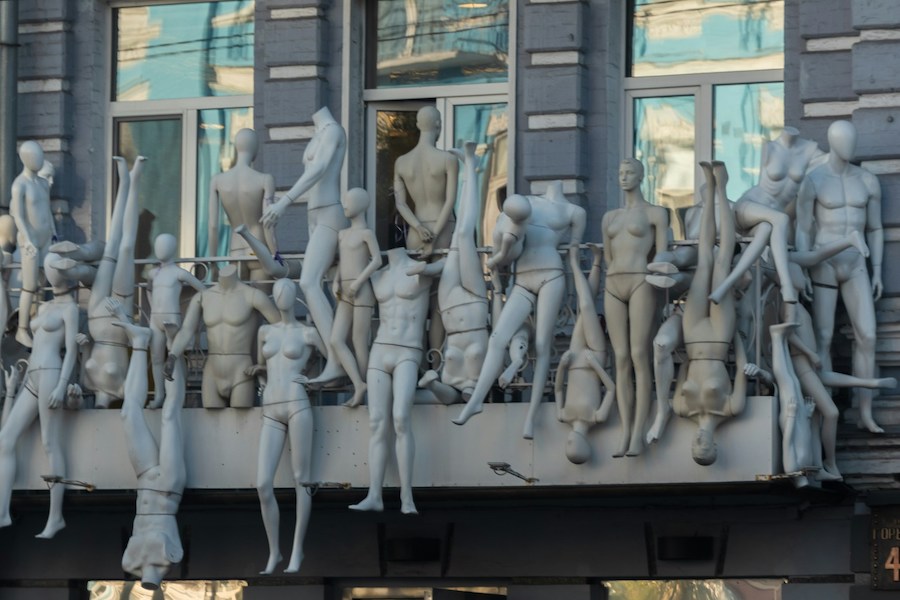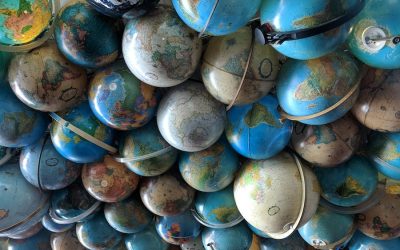Psychology recognizes several defensive responses to trauma: adaptation, denial, and resistance. How has the reality of the war set in for Russian scientists?
Oleg Mironov
Photo: As a consequence of the war, some scientific associations were dissolved and researchers were integrated into other associations—both for political and ethical reasons, and for the sake of human dignity and conscience. Photo by Transly Translation Agency on Unsplash
The response to the trauma of war has influenced the fate of the Russian and international scientific communities.
The Skovoroda Incident
Nine months after the outbreak of the war, one Russian university decided to hold a conference marking the centenary of the birth of Ukrainian philosopher Georgy Savvich Skovoroda. Most representatives of the humanities responded. The organizers also invited their Ukrainian colleagues.
Science often proves to be a “Platonic cave” for scientists, where they can live according to their own rules, regardless of any external disasters occurring around them.
- The question was asked: “Do you really think that after all the evil that your army has done, someone will be willing to talk to you about Skovoroda’s work?”
- And received the answer: “We understand, but our activities are devoted to science, not politics. Let’s stay friends and work together in the pursuit of science, just as before.”
Many Russian scientists sincerely believed that after 9 months of fierce resistance, Ukrainians would be ready to “wait, flowers in hand, for those who would liberate them from the oppression of Western elites.”
“We Don’t Want to Listen”
History shows us how academic ties were broken in the first days of the war.
Our Ukrainian colleagues spoke out through their scientific associations, saying, “We’re being bombed, get up, speak out, do something, demand that your government stops the invasion.” They believed that this was possible and asked us to “publicly express our disagreement in our own cities in order to stop further violence and force the aggressors to leave the territory of an independent state.”
And this is how Russian professors responded to the requests of colleagues with whom they had worked side by side in academia:
- “We do not want to listen to or read reports about the army of ‘Russian fascists;’ this information does not relate to the research for which everyone has gathered in this academic association and subscribed to the scientific newsletter.”
- “We are extremely upset about the situation occurring within this correspondence; we consider this fact unscientific and request that the leadership of the organization put an end to any further discussion of the outbreak of the special military operation in order to avoid further controversy, persuasion or moral coercion to participate in any actions or express opinions, since this is incongruent with the task of developing and better understanding a scientific subject, and unbefitting of a person involved in the production of scientific knowledge.”
- “We consider it unethical to express an opinion on the political actions of heads of state, since these statements are marginal within the academic environment.”
“Respect the Delicate Balance”
The administrations of these associations tried to keep a foot in both camps. But eventually, they had to choose the side that, at the end of February 2022, seemed larger and stronger.
As an example, let us cite the words of the head of one association:
“Dear scientific community, thank you for your opinions and assessments with regard to the difficult political situation. Life is very complicated for all of us now, especially for those who live in Ukraine. However, let’s remember why we banded together. We banded together because we are all interested in our science and we are interested in studying it from an academic point of view. We are all very different; we all have different political views and preferences (or lack thereof). Our organization needs all of you, not simply individual figures. Therefore, we ask you to respect our, albeit fragile, balance: do not throw around rash or emotional labels, do not collect funds in favor of any of the warring parties—there are other platforms for this. We ask everyone not to bring any political issues into our organization, as they do not lead to anything good and only give rise to endless unresolved conflicts. We urge members of the scientific community not to reject further collaboration, much less leave the association: we value and respect you all and look forward to regular and fruitful cooperation.”
“There’s Nothing You Can Do”
Our Ukrainian colleagues left the scientific associations, but not because the associations’ administrations supported the invasion. The reasons run deeper.
Many joint events were being organized before February 24 that were planned to take place after that date. One such event was an online round table dedicated to the phenomenology of types of love in Greek philosophy that was held at the end of February.
Ukrainian scientists and philosophers showed up to the event as planned. The Russian organizers never said a single word about the start of a military invasion.
During the general discussion, a scientist from Sumy remarked: “How strange, colleagues, that we are now talking about love and my windows are shaking from your rocket fire.” Said an elderly philologist from Kharkiv: “Today I went to sign up for the territorial defense forces. There’s a huge line of healthy, angry guys, and everyone speaks Russian.”
To which a philologist from Moscow replied: “There have always been wars and there will always be wars. There’s nothing you can do about it.”
“Man Is a Political Being”
Russian colleagues also left scientific associations. Perhaps some of them, recalling the great figures of the past who founded the philosophical and ethical principles of science—Hypatia, Copernicus, Giordano Bruno—wondered:
What is any science about if it is dehumanized?
The Great Hellenic culture from which modern science arose made polemics, discourse, and the Socratic method the rule of communication between scientists. Ancient minds were not afraid to argue about politics: scientists and philosophers, naturalists and astronomers wrote treatises on politics and feared no tyrant, satrap, or king. “Man by nature is a political being,” declared Aristotle.
Many Ukrainians and Russians who left Russian scientific communities in the first month of the full-scale war did not do so for political reasons. Many researchers practice science because there is a dignity in this activity that is higher than the “rulers of this world.” We see this dignity in Diogenes’ words to the ruler of the world: “Please move a little to the side. You’re blocking the sunlight.” And when the temple of knowledge begins to look decrepit, they no longer want to be involved.
Some colleagues admitted: “We have a scientific and clinical research school that has been in operation for more than thirty years. And if we oppose the war, the numerous years of work by hundreds of scientists will be destroyed. They won’t let us work, they won’t let us develop medicines. Thus, we have long denied ourselves the pleasure of scolding the authorities, and that’s not changing now.”
The Final Straw
However, many Russian scientists preferred to start life anew for the sake of gaining academic independence, as well as the freedoms of scientific research, self-organization, and self-government, without which any science sooner or later transforms from the muse of progress into the handmaiden of dictatorship.
Many of them had chosen not to leave when:
- governors were given the authority to determine scientific research topics
- the government canceled the Russia Foundation for Basic Research’s annual competition to determine the best scientific research projects
- amendments restricting educational activities were adopted
- government officials planted agents in the leadership of the Russian Academy of Education and the Institute of Philosophy of the Russian Academy of Sciences
- the regime persecuted and fired university professors
But the war was the final straw, proving too heavy a compromise to bear.
* * *
The result was that some scientific associations were dissolved and researchers were integrated into other associations—both for political and ethical reasons, and for the sake of human dignity and conscience: “All progress is retrogression if the process breaks man down.”
Academic Bridges, Ark for Scientists, Science at Risk, and other associations of scientists who oppose the military invasion have become not only independent platforms for the expression of scientific thought, but also new aggregators of scientific research, projects, and opportunities for personnel relocation.
In February 2022, more than 8,000 Russian scientists staged an anti-war protest. Over the next year and a half, more than 2,500 scientists left the Russian Federation.
Even more scientists have abandoned their scientific careers for political and ethical reasons but remain in Russia.





0 Comments